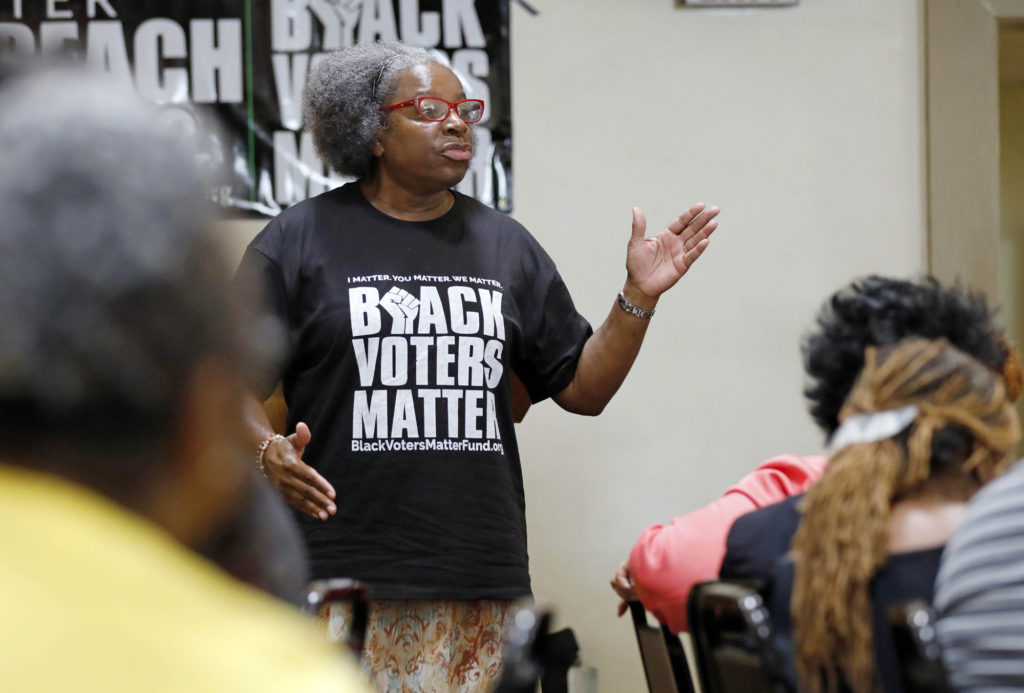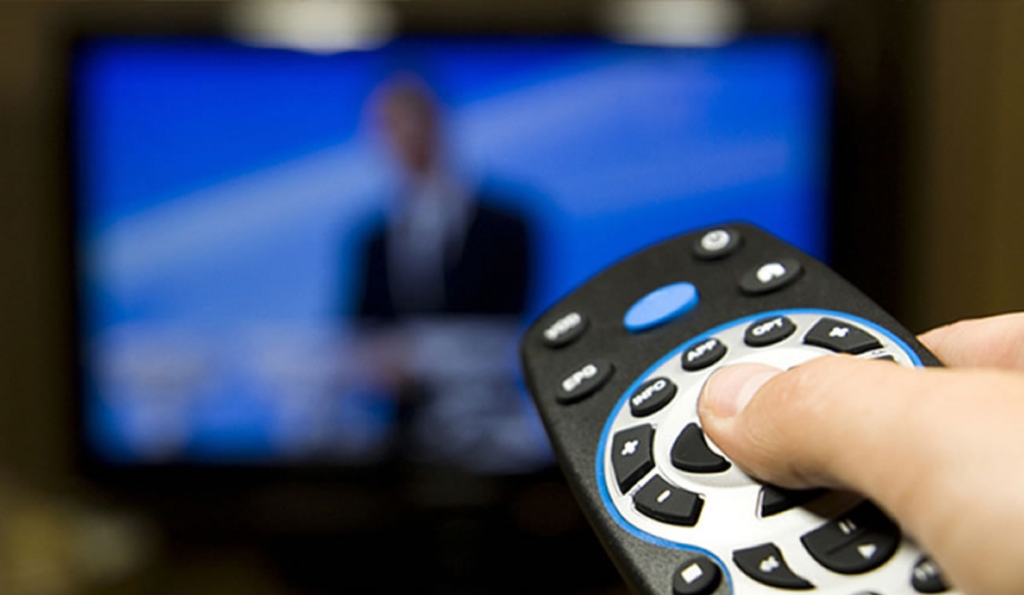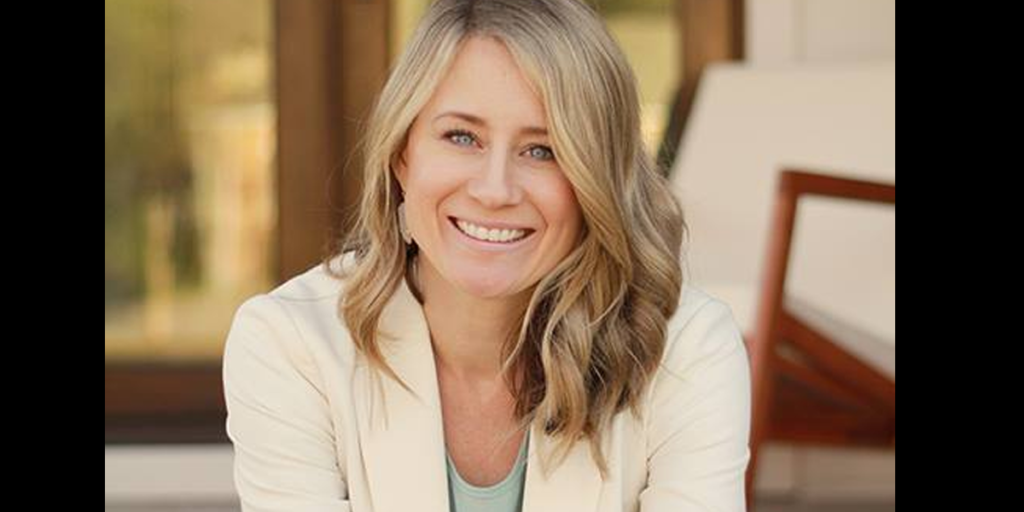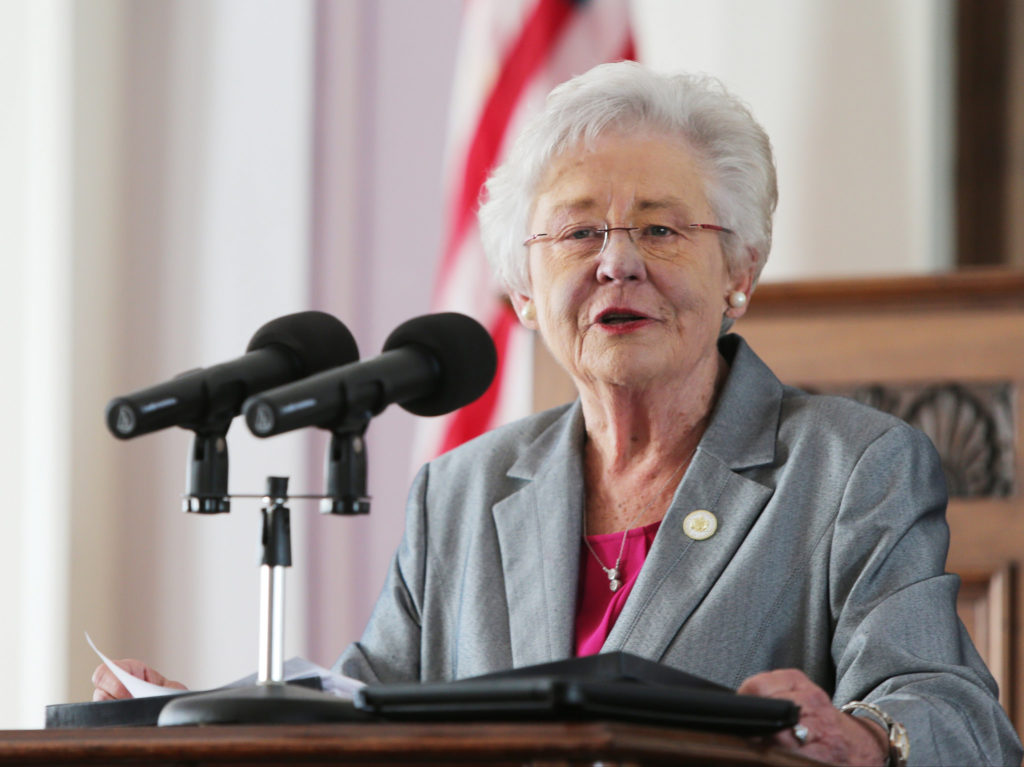Democrats’ not-so-secret plan to fight midterm malaise

They’re asking pastors to text their congregants about the importance of voting. They’re connecting with thousands of Puerto Ricans displaced by Hurricane Maria. And they’re relying on groups like the NAACP, which has tripled its spending from 2016 to energize black voters. Less than three weeks before Election Day, Democrats are sparing nothing to make sure their voters head to the polls. It’s all part of an effort to avoid the disappointment of previous elections when low turnout dashed high expectations. “2016 was a low point for a lot of us,” said Jamal Watkins, vice president of engagement at the NAACP. “People have awakened and said, ‘Wait a minute, we can’t lose, and we can’t lose like this.’ Folks are fired up to reinvest in turnout.” Younger voters and voters of color tend to stay home in non-presidential elections, making the midterm electorate older, whiter and more Republican-tilting. But that could change this year, Democrats and outside groups say, if unprecedented efforts to reach so-called infrequent voters galvanize people who previously sat on the sidelines. Democrats have reason for optimism: The party saw strong turnout in nearly a dozen federal special elections ahead of the midterms, with Democratic candidates consistently outperforming Republicans. But the organizing flurry comes amid concerns over ballot access and election security, which have become a flashpoint in the high-profile gubernatorial race in Georgia. There is also mounting anxiety about whether efforts to mobilize Latino voters will translate into votes, particularly in several key races in heavily Latino districts. The party is spending big to ward against such threats. The Democratic Congressional Campaign Committee, the party’s arm focused on House races, is spending more than $25 million in 45 battleground districts to mobilize female voters, millennials, African-Americans and Hispanics, officials said. That’s a far more significant investment than past cycles. The committee is putting an emphasis on turning out African-American women, including running advertising focused on black women ages 18-39 in more than 40 districts. The DCCC has also run Spanish-language TV and radio ads across the country. Between field efforts and paid media, voters of color in targeted swing districts will have heard from the DCCC more than 100 times in the closing 60 days of the election. And in a twist, some of the outreach this year will be facilitated by local community leaders instead of anonymous politicos. “As an example of the local voter contact and text messaging program that we are doing, we are partnering with a series of pastors and local validators across the country,” said DCCC Executive Director Dan Sena. “When you’re getting a text message saying ‘hey – early vote’s starting,’ you’re not getting it from someone in Washington D.C. You’re actually getting it from somebody in Georgia that has a big delegation, or you’re getting it from someone on campus that you know.” The Democratic National Committee also beefed up its voter database, purchasing 94 million cellphone numbers, according to a DNC official who spoke on the condition of anonymity to discuss internal strategy. The official said the additional cell phone numbers have helped with voter contact in key races across the country, including encouraging sporadic voters to participate. Republicans say they have their own well-organized, well-funded turnout machine that dwarfs Democrats’ efforts. A Republican National Committee aide said the organization has raised more than $250 million this cycle, invested in 28 states, more than 540 paid staffers and thousands of volunteers who are focused on turning out Republicans who don’t vote often and swing voters who participate more frequently. The committee raised more than $150 million during roughly the same period ahead of the 2014 midterms. The aide said the RNC has made more than 50 million voter contacts, either over the phone or by going door-to-door The Democratic organization effort goes beyond the traditional party structure. NextGen America, the advocacy group backed by billionaire environmentalist and donor Tom Steyer, is injecting more money into a closing push to rally young voters. The group will spend more than $4 million on digital ads across 11 states, targeting more than 4.3 million young voters. NextGen is also running the first political ads on Twitch, a popular video streaming service, as well as places like Reddit, Spotify and Pandora. “Young people in general feel like they’ve really been shut out of the system,” said Aleigha Cavalier, a spokeswoman for NextGen America. “Our goal with digital is to find a message that works for them and actually put it where their eyeballs will see it.” The Human Rights Campaign’s Equality Votes PAC launched a more than $2 million campaign across eight key races spanning digital, direct mail, text and phone voter contact. The NAACP’s campaign is targeting more than 5 million “infrequent” black voters, including in the key states of Florida, Georgia and North Carolina, in a $6 million voter mobilization push, up from $2 million spent on mobilization in 2016. The push includes upward of 20 staffers focused on mobilizing black voters, the majority of those, according to Watkins, working in key states with thousands of on-the-ground volunteers. In Georgia, the organization is targeting more than 700,000 “infrequent” voters. In Florida, the number swells to more than 900,000. The NAACP is not the only group that’s boosting its turnout effort. The AFL-CIO, the nation’s largest labor federation, also shifted its strategy. Julie Greene, who is leading the union’s mobilization efforts, said that in 2014 and 2016, the union experimented with an independent expenditure program that had more of a focus on the general public, rather than the union’s member-to-member program. The union found that its members had not turned out in support of labor-endorsed candidates at the same levels as in the past. The union now hopes to increase turnout among its members by 5 percent, up from 57 percent in 2014. But it is also investing significantly in mobilizing Hispanic and African-American voters. Last week, the union announced plans to air ads on African-American and Spanish-language radio in
2018 statewide election ad roundup: August 24 edition

The November 6 general election is less than 80 days away and Alabama’s candidates have taken to the internet and the airwaves with campaign ads in hopes of swaying Yellowhammer State voters to their side. This week, only Democratic gubernatorial candidate Walt Maddox released a new ad. Maddox has called Governor Kay Ivey to debate him several times, and each time she’s dismissed his proposals saying; “When he finishes debating himself he can talk.” In response, Maddox has released a series of ads where an invisible announcer addresses an empty debate podium labelled “Kay Ivey,” asking the podium a series of questions. The empty podium never answers; leaving the announcer to ask “Governor Ivey? Governor?” Maddox then responds to the question himself, securing his positions on issues from his pro-life stance, to Supreme Court nominee Brett Kavanaugh‘s confirmation. This week Maddox addresses a series of topics including corruption and ethics laws, former Chief Justice Roy Moore‘s misconduct, and infrastructure. Gubernatorial ads Democrat Walt Maddox: Title: Debate Topic #3: Corruption and Ethics Laws Published: August 16, 2018 Tone: Scornful Title: Debate Topic #4: Roy Moore’s Misconduct Published: August 21, 2018 Tone: Optimistic Title: Debate Topic #5: Roads, Bridges and other Infrastructure Published: August 23, 2018 Tone: Outraged
Five things you need to know about Kari Powell

Now that the primaries are over, the real battle has begun. Running unopposed in the June 5 Primary Kari Powell, the Democratic candidate for Public Service Commissioner Place 2, will face against Incumbent Chip Beeker in the November 6 general election for the PSC seat. With that in mind, here are the five things you need to know about Kari Powell: 1. She’s a graphic designer and marketer by trade. Powell began her career working for two large family owned real estate companies as a Marketing Director, and has won an award for her talents. “I was integral in designing and developing new websites for both companies, and maintaining content. Other duties included developing and implementing external and internal marketing campaigns, and creating marketing and advertising plans for sales associates,” Powell said. In 2013, she won a HOW International Design Award for the logo she designed for her husband’s business, Powell Pediatric Dentistry. 2. She volunteers her time and talent to several organizations. In addition to designing her own campaign logo, she also designed Senate District 11 candidate Carl Carter, and Public Service Commission Place 1 candidate Cara McClure‘s branding. “In 2017 I did a pro-bono rebranding of the Service Guild of Birmingham, an organization which I am a member of,” Powell told Alabama Today. “I do as-needed design work for my church, Saint Junia UMC. In 2016 I designed the logo for the local organization Faith In Action Alabama, of which I am also a member.” She also volunteers her time at the Bell Center for Early Intervention Programs with infants and toddlers at risk for developmental delay. 3. She’s a graduate of Emerge Alabama candidate training. Emerge Alabama founded in 2017, is a training group for Democratic women in the state with only one goal: increase the number of Democratic women serving in office in the state. It is an intensive 70-hour training program with proven results. “In 2016, over 330 Emerge alumnae ran for office across the country and 70 percent of those who appeared on the November ballot won their elections,” Emerge Alabama said. 4. Her grandmother was involved in politics, and was the person who convinced her to run. Powell’s grandmother ran for office herself in the 1960’s beating six men for her seat on the school board, which was rare at the time, continuing to run unopposed for the next two terms. “She saw how active I had become over the past couple of years in local and statewide elections, and she pulled me aside at a family wedding, and asked if I had ever considered running for office,” Powell said. “She said she regrets not taking her political career further, and urged me to consider running.” 5. She and Cara McClure are leading a double-team effort for PSC Places 1 and 2 In addition to creating McClures branding, the duo is leading a double-team effort for PSC Places 1 and 2 traveling, campaigning and speaking together at events. Both running as Democrats, they seek to bring fair and affordable utility rates to Alabama.
Here’s everyone the Alabama Grocers Association has endorsed in the 2018 election cycle

The food retail industry in Alabama provides over 69,000 jobs with over $2.2 billion in annual wages paid. Grocers pay over $1.2 billion in state taxes and have a total economic impact on the state’s economy of over $12 billion dollars, which is why the Alabama Grocers Association (AGA), the leading voice of the grocery industry in the state of Alabama, has officially made a bevy of endorsements for candidates who have opposition in the June 5 primary. Founded in 1990, AGA is dedicated to advocating for a business climate that creates, protects and promotes the grocery industry in Alabama. “We believe the following candidates understand the role of the grocery industry and its importance to the economy of the state of Alabama,” said Frank D’Amico, III, Alabama Grocers Association Chairman. “AGA is confident these candidates will be fair to our industry and represent the best choices in this primary election,” said Ellie Taylor, Alabama Grocers Association President. Here are the candidates who SACKPAC (the political arm of the AGA) has endorsed who they believe have the best record and pro-business attitude: U.S. Congress U.S. House of Representatives, District 2: Martha Roby (R) U.S.House of Representatives, District 4: Robert Aderholt (R) Statewide races Governor: Kay Ivey (R) Lieutenant Governor: Twinkle Andress Cavanaugh (R) Attorney General: Steve Marshall (R) Secretary of State: John Merrill (R) Treasurer: John McMillan (R) Commissioner, Alabama Department of Agriculture & Industries: Rick Pate (R) State Senate Races District 2: Tom Butler (R) District 7: Mary Scott Hunter (R) District 8: Steve Livingston (R) District 10: Craig Ford (I) District 12: Del Marsh (R) District 21: Gerald Allen (R) District 25: Will Barfoot (R) District 26: John Knight (D) District 33: Vivian Figures (D) District 34: Jack Williams (R) State House Races District 3: Humphrey Lee (R) District 9: Scott Stadthagen (R) District 10: Mike Ball (R) District 12: Corey Harbison (R) District 14: Tim Wadsworth (R) District 16: Kyle South (R) District 17: Phil Segraves (R) District 18: Jamie Kiel (R) District 19: Laura Hall (D) District 22: Ritchie Whorton (R) District 23: Tommy Hanes (R) District 27: Wes Kitchens (R) District 30: Robert McKay (R) District 31: Mike Holmes (R) District 32: Barbara Boyd (D) District 39: Ginny Shaver (R) District 42: James M. “Jimmy” Martin (R) District 45: Dickie Drake (R) District 48: Jim Carns (R) District 49: April Weaver (R) District 55: Roderick Scott (D) District 56: Louise Alexander (D) District 59: Mary Moore (D) District 61: Billy McFarland (R) District 64: Harry Shiver (R) District 73: Matt Fridy (R) District 77: Malcolm Calhoun (D) District 82: Pebblin Warren (D) District 85: Dexter Grimsley (D) District 89: Marcus Paramore (R) District 97: Adline Clark (D) District 102: Willie Gray (R) District 105: Chip Brown (R) Alabama Supreme Court Justice: Lyn Stuart (R) Associate Justice, Place 1: Brad Mendheim (R) Associate Justice, Place 4: Jay Mitchell (R) Alabama Court of Civil Appeals Place 1: Christy Edwards (R) Place 2: Judge Terri Thomas (R) lace 3: Judge Terry Moore (R) Alabama Court of Criminal Appeals Place 1: Richard Minor (R) Place 2: Chris McCool (R) Place 3: Judge Bill Cole (R) Public Service Commission Place 1: Jeremy Oden (R) Place 2: Chris “Chip” Beeker, Jr. (R)
‘Lets debate’ gubernatorial candidates join forces to call out Kay Ivey

Several gubernatorial candidates have joined in on Huntsville Mayor Tommy Battle‘s invitation to debate Gov. Kay Ivey. Battle sent his request via e-mail to Ivey’s team on Tuesday, and although they acknowledged they received the invitation, as of Friday Ivey’s team had yet to deliver a response. Other candidates have joined Battle’s call on Ivey, “I’m ready to debate anytime, anywhere,” Semmes- Republican Sen. Bill Hightower told AL.com. “I’ve got some great ideas I want to tell Alabama about. So everybody’s talking about it but I’m ready to do it…I will do it on my own if nobody else does it. I think I’ve got the best ideas…I’ve been in Montgomery for only a few years but it doesn’t take a rocket scientist to see we haven’t had leadership.” “Everyone says they want a debate,” evangelist Scott Dawson said in the same report. “So if you say you’re going to debate, then the next step is actually debating.” “We do not have an elected governor at this stage. We have a selected governor because our previous governor was removed. So I think all of Alabama deserves to hear all four candidates on the platform to share their ideas and their vision instead of being dictated by other people.” Battle, Hightower and Dawson all agreed that debates would be good for the state. However, no actual debates have been formed. Ivey’s campaign told The Associated Press last month that she would be “happy to discuss her record” in a debate setting. Battle has committed to attend the following events, and hopes that Ivey will also attend: April 12 – 7 a.m.: A debate hosted by the Birmingham Business Journal April 12 – 7 p.m.: A debate hosted by NBC 13 in Birmingham April 14 – 8 a.m.: A candidate forum hosted by the Mid Alabama Republican Club in Birmingham May 9 – 2 p.m.: A candidate forum hosted by the Association of Builders and Contractors in Huntsville May 10 – 11:30 a.m.: A candidate forum hosted by the Moody Area Chamber of Commerce


